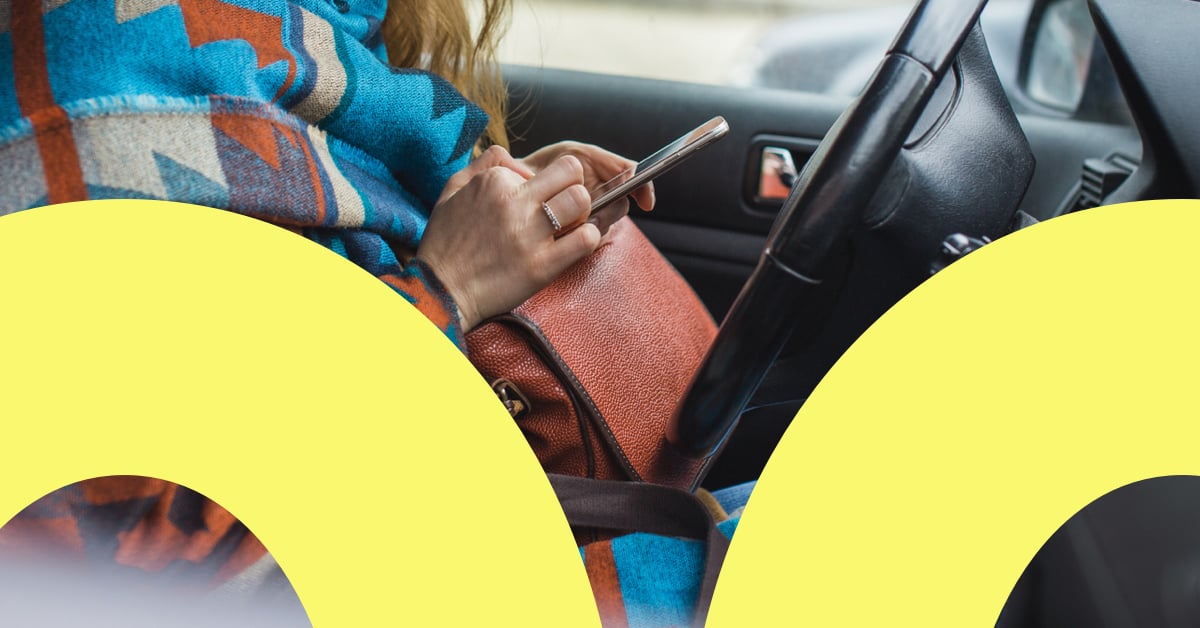Finnish life can often feel small and cozy, but in reality the distances between cities are far and wide. Oh yes, Finland is vast, geographically speaking. And if you’re self-employed you might be wondering what car-related expenses you can deduct in taxes.
Even if you use your car for a tiny portion of your business-related trips, you’re still eligible for tax deductions in Finland. This article explores how to take advantage of car deductions and kilometre allowances (what Finns call ‘mileage allowances’) – and save money as some who's self-employed.
Welcome to Foreign in Finland!Your tailor-made selection of articles on self-employment in Finland, for non-Finnish speakers like you! Subscribe now for updates – straight from the heart of Holvi. ✔️ 100% English ✔️ Up-to-date, accurate info ✔️ For the boldly self-employed |
- Intro to kilometre allowances and car cost tax deductions
- Who pays VAT on mileage and car expenses?
- Kilometre allowance and vehicle costs for the self-employed
- How do I record car expenses, and what is a logbook?
- How to calculate kilometre allowance in 2021
Intro to kilometre allowances and car cost tax deductions
Did you drive to a client’s office? You might be able to write off some driving-related expenses. Car expenses you might be eligible to deduct in accounting and taxes include:
- VAT – in some cases, you can write off VAT entirely
- Operating costs of owning a vehicle (such as fuel, insurance, maintenance) – these can count as deductions in your accounting
- Kilometre allowance (for distance driven) – you can apply for kilometre allowance as an ‘additional deduction’ (lisävähennys) in your annual tax return
Who pays VAT on mileage and car expenses?
We’ll answer that question with another question…
Do you drive a car or a van?
In Finland, these two vehicle types are treated differently for tax purposes. If you drive a van or truck, you can deduct VAT on its operating costs in proportion to how you use the vehicle. For example, if 60% of your total use is for business, you can deduct 60% VAT flat out.
On the other hand, if you have a car that you use for even the slightest amount of private driving, you can’t deduct any VAT. Instead, you can record costs in your books (in relation to business and private use) or apply for a kilometre reimbursement. We’ll explain below.
The exception to paying VAT is a so-called ‘passenger car’ – a car that’s acquired for sale, rental or use as a taxi or driving school car. In this case, VAT can be deducted to the extent that the car is used for business purposes.
A cautionary noteFinnish tax authorities are strict about the right to deduct VAT on a passenger car. To be eligible for VAT deductions, Vero sometimes goes as far as to require entrepreneurs to have a separate car just for private driving. |
Kilometre allowance and vehicle costs for the self-employed
When it comes to your driving, is it business or personal? To figure out kilometre allowances and operating cost deductions on vehicles, you’ll need to know the exact proportion of your car’s private and business usage. In Finland, this means officially recording information in a logbook, or driving diary – cute!
Quick tips
But! Travel from home to your office can be deducted in your own personal tax return, in the same way employees do it. See Vero’s article on employee commuting expenses. |
For vans and trucks
Let’s start with an easy one.
If you own a van or truck, you deduct operational costs the same as VAT: according to what proportion you use the van for business purposes. For example, if you use the van for business 30% of the time, you can deduct 30% of operation costs. Weird fact, in Finland vans simplify taxes. Who knew?
If you own a car, the situation is a bit trickier.
For a personal car
If less than 50% of your car’s total usage is for business, the car is considered your private property and you are not entitled to record operational expenses – like maintenance, insurance, etc. – in your company accounts. Instead, you can apply for kilometre allowances (€0.44 / km in 2021) in your annual tax return. In short, you mark kilometres (mileage) as a business expense in your annual tax return and deduct this amount – see below.
For a company car
If more than 50% of your car’s total usage is for business, the car is considered company property and you can record operational expenses in your company accounts. In this case, all costs are treated in the same way as a van. In other words, if business usage accounts for 80% of the car’s total use, all car costs will be deducted by 80%. Hooray!
Note that even if your car is company property the share of private use is adjusted out of the costs.
What counts as an operational cost?
Operational costs for cars (i.e., car-related expenses) include, for example:
- Fuel
- Maintenance
- Insurance
You can also take into account (excuse the pun) the annual depreciation in your car’s value. If you have more obscure costs not included in our above list, we recommend that you get in touch with an accountant. In Finland, qualified accountants will let you know exactly what does and doesn’t count as a business expense – for cars and all other expenses.
To deduct your car expenses, you’ll need to keep your receipts. The easiest way to do this is to save your receipts electronically in Holvi. You’ll be prompted to snap a photo of your receipt after each purchase, then categorise it for easy bookkeeping.
How long do I keep my receipts?In Finland, you’re required by law to hold onto receipts for six years. |
How do I record car expenses, and what is a logbook (ajopäiväkirja)?
A logbook is a faithful friend who always has your back if Vero comes at you with a tax audit. By keeping a record of your trips in a logbook, you can easily view the accumulation and proportion of business and private trips throughout the year. For legal reasons, all accounting material, logbook included, must be kept for at least six years.
You can choose what form your logbook takes, physical or digital. Keeping a pencil and notebook in your car door is just as valid as recording mileage on your phone.
Mileage tracking? There’s an app for thatLogging trips can be a chore. Here are a few freemium mileage tracking apps to minimise time and effort and help you find balance. Some of these offer integrations with Excel: |
What to record in the driving logbook
The following information must be entered in the logbook for business trips.
For business trips:
- Journey start and end time
- Journey start and end place (location and route)
- Odometer reading at start and end of journey
- Journey length (odometer difference in kilometres)
- Purpose of the journey
- Driver
For private trips:
- Odometer reading at start and end of journey
- Journey length (odometer difference in kilometres)
As author, you’ll need to sign the logbook to make it legally binding. Start practicing your signature!
How to calculate kilometre allowance in 2021
Remember, if more than 50% of car use is private (let’s be real, that’s most of us), applying for kilometre allowance is the simplest way to deal with self-employed car expenses. For this reason, our accountants follow the kilometre allowance method in Holvi Zen.
Here’s how it works. You keep a driving log throughout the year and at the end of the financial year your accountant calculates the kilometre allowance. This means car expenses are not deducted separately in your accounts throughout the year.
Kilometre allowance example calculation
In 2021, the entrepreneur's kilometre allowance is 44 cents / km.
So if you drove a total of 1,000 km for business during the year, you’re entitled to a kilometre allowance of €440. Because...
Business kilometres x kilometre allowance
1000 km x 0.44 = € 440
You apply for this amount in kilometre allowance in your annual tax return.
Find kilometre allowances confusing? An accountant can help
If kilometre allowance and car-related expenses are something you struggle with, it might make sense to turn to an accountant for help. A good accountant will help you decide which format makes sense and advise on what you can and can’t write off as a business expense.
If you’re looking for a suitable accountant for your business, check out Holvi Zen – but note that this service is currently only offered to sole traders in Finnish. English is coming soon!






/6_how_it_works.png?width=477&name=6_how_it_works.png)